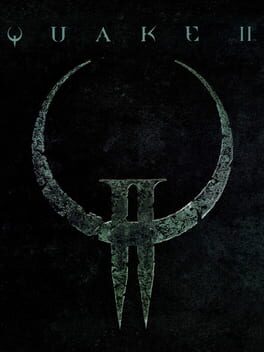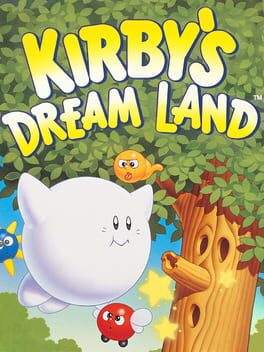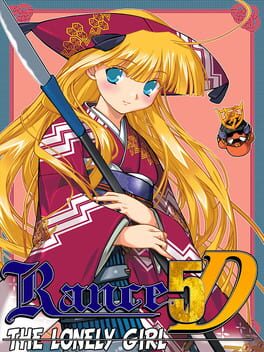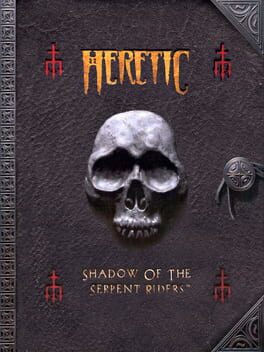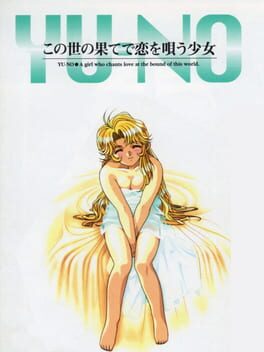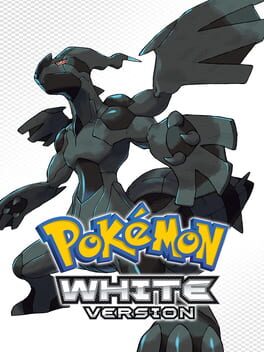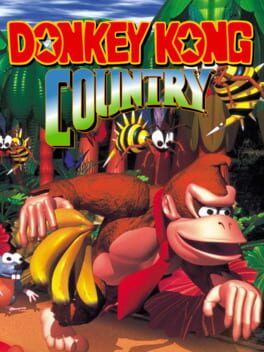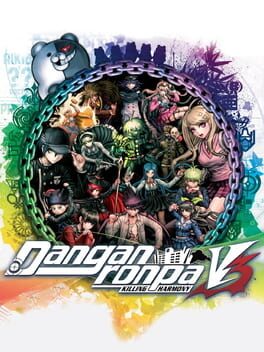Fayacaesu
2023
(Star rating is for Call of the Machine; the base game would likely be a 1.5 or a 2)
To this day, I think Doom 1 and 2 are the only truly great games out of id's 90s output (in singleplayer at least; I've heard the Quake games are far better in multiplayer but I can neither confirm nor deny this myself). Wolfenstein 3D and Quake 1 were likely great games upon release (I wasn't alive so I can't really say for sure) and in retrospect they're still technical achievements for the time, but they're also...dated in the present day, for lack of a better term. Wolfenstein is too rudimentary to be anything but a curiosity, and Quake is a drab game that botches the basics of FPS mechanic design. Doom 1 and 2 are polished, imaginative, and frenetic, if imperfect; even when modern boomer shooter designers take influence from other classics, it often feels like the energy they take to their games' pacing is derived from the primordial cultural concept of Doom, and this isn't to mention the thousands of Doom WADs that build upon its structure more directly. Doom is the sort of masterpiece that comes once in a century; to expect id to make a worthy followup to it within the decade would be foolish.
Quake 2 isn't a worthy successor to Doom, but it fills its place in id's legacy well enough. Infamously, it isn't really a successor to Quake either, though I'm apathetic enough towards Quake 1 to not really care. Quake 2 does utterly trounce Quake 1 in terms of mechanical design (having guns and movement that feel good does a lot) and it's a forward-thinking game for 1997; the interconnected levels and objective-based progression prefigure Half-Life from the next year, but the game avoids the more tedious and naturalistic design choices from Valve's seminal title in favor of a more "boomer" arcade sensibility...well, in most regards at least.
Unfortunately, Quake 2 is also a very toothless game, especially compared to the ball-busting difficulty of Doom 2 and Quake 1. The game floods you with resources, and while some of the enemies are kinda annoying, every encounter is pretty easy to cheese. The game introduces an inventory system (which goes against everything Doom and Quake 1 stood for but I digress) but none of the combat-related items are particularly helpful other than for speeding up the process of shredding through enemies like a knife through warm butter, and I forgot they were even there for most of my playthrough. It's a shame, because the game really could've been good; the gunplay and movement is genuinely excellent, and despite my more Luddite views on first-person shooter design I can't deny the possibilities that the engine brings to mapping. Alas, it wasn't meant to be.
Nearly 26 years later, though, Quake 2 did finally reach its potential. With the 2023 remaster came Call of the Machine, developed by MachineGames, and with it I think Quake 2 has finally become an excellent game. While it still doesn't have the elegance or expandability of Doom, it is a mechanically solid game that finally has the confidence to use every mechanic to its fullest and to give the player a meaty, but fair challenge. Elements of crowd control and resource management that felt underutilized in the original campaign are brought into sharp relief, and the maps transport you to their locations in a way that the main game never did. If I could nitpick, I do think this campaign is a bit stingy with health and armor pickups, and the encounter design forcing players into large open spaces makes the grenades feel almost useless. The campaign is also fairly meaty, but it's difficult to shake off the feeling of "wait, was that it?" at the end. You can select areas non-linearly, but the final level unlocked after finishing the first six is just a final boss; it doesn't feel like the difficulty ramps up or the game remixes elements you saw earlier. You just fight a boss and it's over. CotM is meant to be an extra itself, so I can understand it not having a full game arc, but it all just comes across as kind of underwhelming. Regardless, it's excellent, and I think it's worth the price of admission alone.
The remaster also includes both original expansion packs and the unique campaign from the Nintendo 64 version; for people who want more of a Quake 2 fix, these will suffice nicely, but I wasn't too interested in them. From what I played of the first expansion and the N64 campaign, they hew fairly closely to the original game's design philosophy without being as bold as CotM, so if you want to play all the remaster's content, I'd recommend saving CotM for last.
Now, when's the Quake 3 remaster coming?
To this day, I think Doom 1 and 2 are the only truly great games out of id's 90s output (in singleplayer at least; I've heard the Quake games are far better in multiplayer but I can neither confirm nor deny this myself). Wolfenstein 3D and Quake 1 were likely great games upon release (I wasn't alive so I can't really say for sure) and in retrospect they're still technical achievements for the time, but they're also...dated in the present day, for lack of a better term. Wolfenstein is too rudimentary to be anything but a curiosity, and Quake is a drab game that botches the basics of FPS mechanic design. Doom 1 and 2 are polished, imaginative, and frenetic, if imperfect; even when modern boomer shooter designers take influence from other classics, it often feels like the energy they take to their games' pacing is derived from the primordial cultural concept of Doom, and this isn't to mention the thousands of Doom WADs that build upon its structure more directly. Doom is the sort of masterpiece that comes once in a century; to expect id to make a worthy followup to it within the decade would be foolish.
Quake 2 isn't a worthy successor to Doom, but it fills its place in id's legacy well enough. Infamously, it isn't really a successor to Quake either, though I'm apathetic enough towards Quake 1 to not really care. Quake 2 does utterly trounce Quake 1 in terms of mechanical design (having guns and movement that feel good does a lot) and it's a forward-thinking game for 1997; the interconnected levels and objective-based progression prefigure Half-Life from the next year, but the game avoids the more tedious and naturalistic design choices from Valve's seminal title in favor of a more "boomer" arcade sensibility...well, in most regards at least.
Unfortunately, Quake 2 is also a very toothless game, especially compared to the ball-busting difficulty of Doom 2 and Quake 1. The game floods you with resources, and while some of the enemies are kinda annoying, every encounter is pretty easy to cheese. The game introduces an inventory system (which goes against everything Doom and Quake 1 stood for but I digress) but none of the combat-related items are particularly helpful other than for speeding up the process of shredding through enemies like a knife through warm butter, and I forgot they were even there for most of my playthrough. It's a shame, because the game really could've been good; the gunplay and movement is genuinely excellent, and despite my more Luddite views on first-person shooter design I can't deny the possibilities that the engine brings to mapping. Alas, it wasn't meant to be.
Nearly 26 years later, though, Quake 2 did finally reach its potential. With the 2023 remaster came Call of the Machine, developed by MachineGames, and with it I think Quake 2 has finally become an excellent game. While it still doesn't have the elegance or expandability of Doom, it is a mechanically solid game that finally has the confidence to use every mechanic to its fullest and to give the player a meaty, but fair challenge. Elements of crowd control and resource management that felt underutilized in the original campaign are brought into sharp relief, and the maps transport you to their locations in a way that the main game never did. If I could nitpick, I do think this campaign is a bit stingy with health and armor pickups, and the encounter design forcing players into large open spaces makes the grenades feel almost useless. The campaign is also fairly meaty, but it's difficult to shake off the feeling of "wait, was that it?" at the end. You can select areas non-linearly, but the final level unlocked after finishing the first six is just a final boss; it doesn't feel like the difficulty ramps up or the game remixes elements you saw earlier. You just fight a boss and it's over. CotM is meant to be an extra itself, so I can understand it not having a full game arc, but it all just comes across as kind of underwhelming. Regardless, it's excellent, and I think it's worth the price of admission alone.
The remaster also includes both original expansion packs and the unique campaign from the Nintendo 64 version; for people who want more of a Quake 2 fix, these will suffice nicely, but I wasn't too interested in them. From what I played of the first expansion and the N64 campaign, they hew fairly closely to the original game's design philosophy without being as bold as CotM, so if you want to play all the remaster's content, I'd recommend saving CotM for last.
Now, when's the Quake 3 remaster coming?
1992
I've seen some people who consider the original Kirby's Dream Land to be one of the weaker platformers in the pink puffball's catalog, and I couldn't disagree more. It's one of the most impeccably designed action games of the 8-bit era; it's based around a novel concept (swallowing and spitting out enemies) that is explored to its fullest potential across stages that have little to no wasted space or redundancy while continuously guiding the player through setpieces that never interrupt the game flow. It looks and sounds excellent and distinct, and upon beating the game you can replay it with more challenging obstacles and bosses, along with being able to perform challenge runs, and the incredibly short length guarantees that, no matter how many times you replay it, it'll never get tedious. Sure, later games would introduce far more depth with copy abilities and collectibles and grandiose adventures, but taken on its own instead of in relation to the games from Adventure onwards, Dream Land 1 is still a tight and polished experience that I could recommend to anyone even 30 years after its initial release.
Honestly, not that bad. Is this game an unending RNG spam simulator? Yes, very much so. But given a bit of perseverance and possibly some outside help it's not really painful in any way; it's a brisk game with a short runtime that keeps the gears in your head turning, and the RNG acts more as a spice than a wall or a serious obstacle for the most part. If you want an epic traditional RPG then yeah, you're better off playing Rance VI, but if you're okay with a game that pushes the envelope and tries for more experimental design, this is a thoroughly entertaining time.
Heretic was always going to be a pretty good game.
This isn't because the original concept was incredibly inspired or the sheer game-making prowess of Raven Software at the time. It's because this is a Doom clone. Not in the sense of it merely resembling Doom's design (like the Build Engine games that originated at around the same time), but in the sense of it being built on Doom's engine and largely feeling incredibly similar to Doom 1 and 2 in terms of game feel and design.
This isn't to say that Raven didn't add things to Doom's design; while most of the weapons have a Doom 1 equivalent, they tend to have slightly different particulars; the Dragon Claw doesn't share ammunition with the wand, the bow shoots 3 arrows, one of which is more powerful than the others, etc.
Unfortunately, most of these changes aren't really for the better. The exception is the complete eradication of "hitscan" enemies, which is on its own probably enough to make Heretic better than Doom 1/2 to some people. The addition of an inventory system also adds a bit of strategy and planning; while a bit janky in execution, I think the idea is solid. But in exchange, you get enemies that have knockback like Simon Belmont and every enemy has several attacks, many of which are unpredictable and difficult to account for in a way Doom rarely was.
The most baffling of these design choices is the decision to apply different rules to boss monsters; several items won't affect them, and other enemies won't infight with them. The infighting gutting would be a bad choice in any game utilizing Doom's mechanics, but it gets unforgivable in episode 4 and 5. where as some sort of bizarre difficulty scaling choice, every level has multiple Iron Liches and at least one Maulotaur, often placed in the most dickish locations possible. I'd argue this is actively worse than the classic Cyberdemon spam, and this is a commercial game!
The level design in general is...it's fine. A lot of the switches are nonsensical and open doors and raise/lower platforms on the complete other side of the map, some levels require usage of a flight powerup that never feels natural, and I generally got lost a hell of a lot more than I did in Doom 2, which I already thought had some inconsistent level design. The first levels of episode 3, 4, and 5 are also exponentially more difficult than any other level in the game; there definitely could've been a bit more attention paid to level balancing.
Heretic isn't a bad game; the game feel is excellent, as to be expected of a game that's basically a glorified Doom WAD, and I did have fun going through the levels, even if I have some complaints with a good chunk of them, but I don't think it's on the level of Id's in-house Doom engine creations, and I'd probably recommend just playing Plutonia or a user-made WAD over it.
This isn't because the original concept was incredibly inspired or the sheer game-making prowess of Raven Software at the time. It's because this is a Doom clone. Not in the sense of it merely resembling Doom's design (like the Build Engine games that originated at around the same time), but in the sense of it being built on Doom's engine and largely feeling incredibly similar to Doom 1 and 2 in terms of game feel and design.
This isn't to say that Raven didn't add things to Doom's design; while most of the weapons have a Doom 1 equivalent, they tend to have slightly different particulars; the Dragon Claw doesn't share ammunition with the wand, the bow shoots 3 arrows, one of which is more powerful than the others, etc.
Unfortunately, most of these changes aren't really for the better. The exception is the complete eradication of "hitscan" enemies, which is on its own probably enough to make Heretic better than Doom 1/2 to some people. The addition of an inventory system also adds a bit of strategy and planning; while a bit janky in execution, I think the idea is solid. But in exchange, you get enemies that have knockback like Simon Belmont and every enemy has several attacks, many of which are unpredictable and difficult to account for in a way Doom rarely was.
The most baffling of these design choices is the decision to apply different rules to boss monsters; several items won't affect them, and other enemies won't infight with them. The infighting gutting would be a bad choice in any game utilizing Doom's mechanics, but it gets unforgivable in episode 4 and 5. where as some sort of bizarre difficulty scaling choice, every level has multiple Iron Liches and at least one Maulotaur, often placed in the most dickish locations possible. I'd argue this is actively worse than the classic Cyberdemon spam, and this is a commercial game!
The level design in general is...it's fine. A lot of the switches are nonsensical and open doors and raise/lower platforms on the complete other side of the map, some levels require usage of a flight powerup that never feels natural, and I generally got lost a hell of a lot more than I did in Doom 2, which I already thought had some inconsistent level design. The first levels of episode 3, 4, and 5 are also exponentially more difficult than any other level in the game; there definitely could've been a bit more attention paid to level balancing.
Heretic isn't a bad game; the game feel is excellent, as to be expected of a game that's basically a glorified Doom WAD, and I did have fun going through the levels, even if I have some complaints with a good chunk of them, but I don't think it's on the level of Id's in-house Doom engine creations, and I'd probably recommend just playing Plutonia or a user-made WAD over it.
Hesitated a second while rating this. As a narrative experience, this is easily a top-class adventure game that handily wipes the floor with any other game from the mid-90s or earlier. Some of the sexual aspects are gratuitous and kind of inexplicable, even by eroge standards, though not particularly surprising given the state of erotic games prior to the mid-2000s and Kanno's record as a creator. The ending segment is, per creator testimony, incomplete; while still engaging in it's current form, it does kind of leave you to wonder what could've been As a video game...I suppose I'm not the right person to construct a thorough critique of it, I've never been a big point-and-click adventure game fan (and this is a proper point-and-click game by every metric, even surpassing Elf's own Isaku in complexity and scale) and I largely engaged with YU-NO as a modern ADV/visual novel, using a walkthrough to navigate through the gameplay sections to substitute for my own lack of adventure game intuition. I can respect the vision and a good deal of the finer elements, but I think the atmosphere of PC98 adventure games ended up hurting the design; there's really no reason you should have to idly click through an endless wall of flavor text and pixel hunt for the triggers to continue onwards, and the (entirely linear) opening and ending segments are as good an argument as any against the predominant form of command ADVs that prospered when this game was released. Still, I really do like this game a lot, despite my laundry list of complaints with it, and would recommend it in a heartbeat to any fellow retro game and sci-fi enthusiasts.
I think this is the only mainline Pokemon game I've completed? This rating should stand true for all the games I've tried to play though; in the end I really cannot deal with the barebones plots and writing and the tortuously slow and shallow combat in a genre where that's the main appeal. The monster collecting isn't a bad idea other than the tedium caused when you realize that there are several hundred of them to catch all of, but there's literally nothing else here. honestly i really don't blame jrpg haters if this slop is their only exposure to the genre lol
1994
If it wasn't for the mesmerizing OST, this would legitimately be one of the most soulless games I've ever played. Outside of secret hunting the level design is generally functional, I guess, barring some borderline unplayable sections in the back part, but it never feels "inspired", or, possibly more importantly, particularly "fun". Everything just exists for the sake of filling time. The general muddy color palate combined with some pretty rudimentary pre-rendered graphics that dip into outright ugliness really does not help matters; in my humble opinion, it's not that it "aged badly", it's that it was always a stupid gimmick that people were too busy frothing at the mouths about at the time to think about critically. god i'm upset
To call V3 "controversial" or "divisive" would be an egregious understatement; out of all of the games on this paltry list at the time of writing, this is probably the one that's most widely disliked. But really, I swear this isn't some empty exercise in contrarianism; Danganronpa as a series revels in extremes in storytelling and straightforwardness in gameplay, and V3's utter lack of subtlety leads to it being able to tackle subjects that most other games (including its own prequels) would try to sugarcoat or communicate through subtext (which as we all know is a refuge for cowards). I legitimately do think that this is the best video game I've ever played in a lot of ways, and I hope that someday Kodaka will be able to surpass it.
